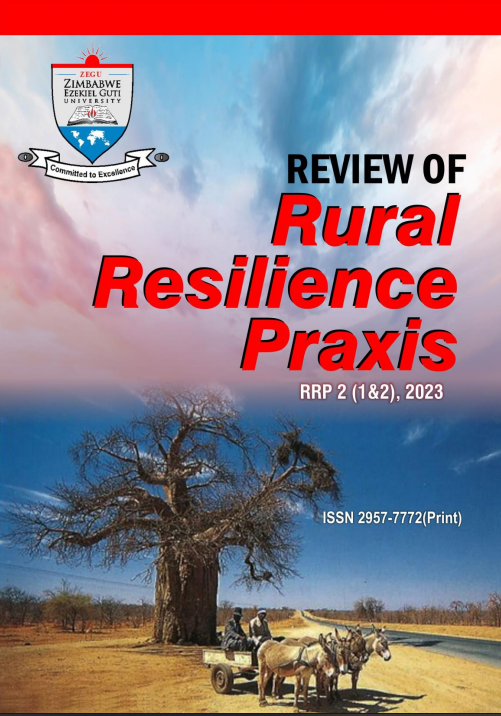Social Networks and the Human Factor Perspective on Rural Development in Chimanimani District, Zimbabwe
DOI:
https://doi.org/10.71458/048spg68Keywords:
sankofa, dare, social capital, communication, social resilienceAbstract
Uplifting human factor principles is a sine qua non for rural development. However, severe human factor decay has become a reality in remote rural districts of Zimbabwe. Failure to network seems to be a paradox that needs to be unlocked. Networks are based on good relationships. Relations impact on science and any livelihood programs. Networks are the bedrock for trust. Trust is a resilience builder for that sustainability. Limited networks and the general low human factor as evidenced my mistrust, poor service delivery, corruption poor communication, have led to stagnation or even regression of the development gains brought by political independence. The conclusions of this article are drawn from a study done in the Chimanimani Rural District of Zimbabwe. Whilst councils are the nerve centers for rural development, their members are continuously failing to make the most of the ongoing networking platforms at their disposal. Respondents were chosen conveniently and judgmentally. This study revealed very poor networking among community members and organizations operating in the district. The conclusions of this article arrived at reminding to “going back-for-it” (sankofaism), thereby integrating globalised philosophies with African indigenous knowledge on leadership. Indeed, Chimanimani District has the capacity for growth and sustenance of the same.




